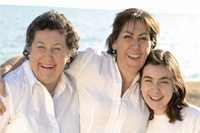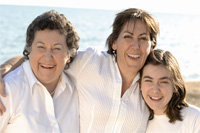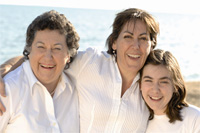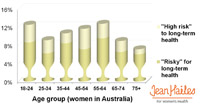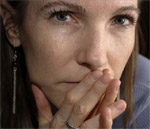Gender Specific Medicine

Gender Specific Medicine
Heart disease is still the no.1 killer of women, with 1 in 3 affected. Women are more at risk of heart disease after menopause and experience different symptoms of a heart attack to men.
Research shows women are far more concerned about heart attacks for the men in their lives than themselves. However, after menopause women are equally at risk as men. Being unaware of the risk places women at greater risk of ignoring a heart attack if it happens.
Women are often unaware they are experiencing a heart attack and may not get help immediately, resulting in greater heart damage. Being aware of how women experience heart attacks may just save a life – either yours or someone you care about.
There is new evidence of the protective role of oestrogen, which explains why women's risk of heart disease and stoke increases after menopause, as oestrogen levels decline.
Associate Professor Chris Sobey from Monash University believes that oestrogen holds the key to improving the outcomes in women after a stroke. The Monash team has found that activating an oestrogen receptor in women who have had a stroke improves their recovery; but when the same receptor is activated in men, they show worse outcomes.
This ground-breaking finding is based on a new understanding that men and women are different right down to the cellular level. Women, it seems, show different susceptibility to disease than men. For example, non-smoking women are three times more susceptible to lung cancer that men, but if they receive appropriate care, show better survival rates.
In addition, women may need different investigations for diseases such as heart disease. It seems that heart disease in men is more visible, such as a blockage, on standard investigations. However, women lay down plaque within the arteries more evenly and therefore need investigations that are more sensitive, such as an intra-coronary ultrasound.
This can be critical information that can save a women's life.
One of the reasons we don't know a lot about effective treatments for women is that drug trials do not separate data between men and women. This leaves us none the wiser about the different responses between the sexes and therefore, which treatments are more effective for women.
This new and emerging era of personalised medicine, including differences between men and women, promises exciting new insights and effective treatments for women. And it will also broaden our understanding of women's health.
Published with the permission of Jean Hailes for Women's Health
1800 JEAN HAILES (532 642)
jeanhailes.org.au
Have You Seen This?
MORE
- Menstrual Period Management
- The Secret to Weight Loss
- Feeling The Pain: How To Tackle Period Pain
- Period Pain and How to Survive It
- Gender Specific Medicine
- Helping Women To Start Those 'Difficult'...
- Michelle Boyd Ellura Interview
- Menopause Does Not Protect Women From Cervical...
- Five Ways to Balance Hormones
- Do You Really Know What Is Going On Down There?
- Do You Know Your Breasts?
- Dr. Stan Goldstein Sexual Health Choices Interview
- Breast Health Decision Question and Answers
- Breast Cancer Treatment Impacts Patients' Sex...
- Bladder Weakness More Common Than Hay Fever
- Belinda Reynolds How To Manage UTI's Naturally...
- Treat Bones Like Breasts
- Mammogram Technology
- Soodox for Women
- Chlamydia Most Commonly Reported STI In Australia
- Time For Reflection Is Great For Mental Health


